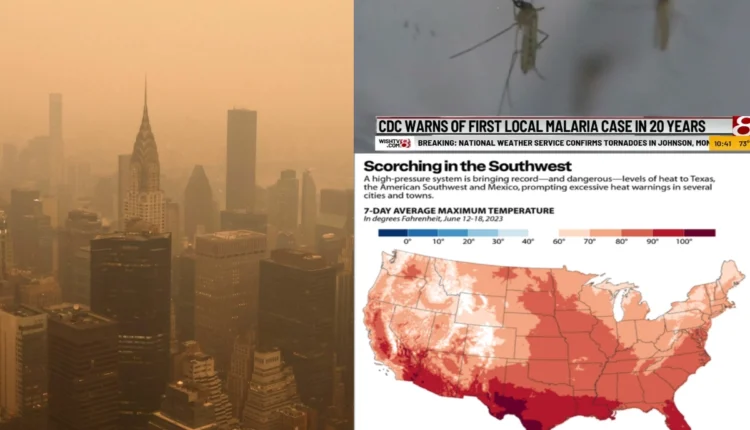Record-Breaking Heat Waves and Malaria Resurgence Shakes the US
Climate Change's Unexpected Health Consequence in Texas
Texas is now in the throes of a historic heat wave, with towns throughout the state experiencing searing temperatures that have surpassed previous records. As the mercury climbs, worries about public health are rising, highlighting the urgent need to address the consequences of climate change. Simultaneously, New York City and Chicago are battling with the worst air quality among major cities globally owing to smoke from disastrous wildfires in Canada.
The sweltering heat in Texas has seen cities like Houston, Austin, and Dallas suffer temperatures much beyond the usual. Meteorologists are attributing this catastrophic weather occurrence to a variety of variables, including climate change and a protracted high-pressure system sitting over the area. As a consequence, heat-related diseases and crises have skyrocketed, driving healthcare systems to their limits.
Meanwhile, inhabitants of New York City and Chicago are confronting a distinct but equally grave danger to their health. Wildfires blazing in Canada have produced plumes of smoke that have flown over huge distances, blanketing these major metropolises in a thick haze. The ensuing air pollution has reached dangerous levels, with experts warning of increasing respiratory difficulties and other health hazards for inhabitants, especially those with pre-existing diseases.
Adding to these climate-related health problems, the United States has had its first occurrences of local malaria transmission in decades. While malaria is largely linked with tropical locations, researchers think that shifting climate patterns and more worldwide travel have led to the comeback of the illness. Such events are an intense reminder that the warming planet is not just an ecological issue yet a major threat to public safety.
A new analysis from a famous medical magazine underlines the adverse effect of climate change on human health. It underlines the relationship between our dependency on fossil fuels and the heightened danger of food shortages, infectious diseases, and heat-related ailments. Urgent action is required to reduce the consequences of climate change, shift to sustainable energy sources, and safeguard the health and well-being of people globally.

